Joyce T. Strand's Blog, page 24
August 22, 2013
WHAT THE EXPERTS SAY: Author Claudia Harbaugh
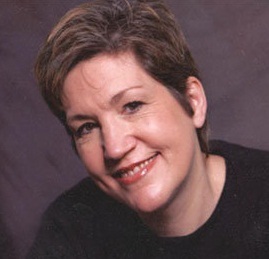 Claudia Harbaugh, Author
Claudia Harbaugh, AuthorHER GRACE IN DISGRACEAuthor Claudia Harbaugh enjoys reading and writing about the Regency era. Her passion brings us her novel HER GRACE IN DISGRACE. Reviewers enthusiastically endorse the historical romance, “A cast of original characters turn THIS novel into a well written story with surprising and humorous twists and plots.”
Besides being a confessed Anglophile, Harbaugh is devoted to her family, loves to read, and enjoys being by the ocean. She also has a Shih Tzu named Camden, “who is very cute and a little spoiled.”
Don't miss the excerpt following the interview.
Q: What about Regency romances appeals to you? Why do you enjoy them? Claudia Harbaugh: The Regency era is a wonderful backdrop for romance because of the contrasts. Outwardly, all was politeness, but there was tension in the lack of equality between men and woman, rich and poor.
A great story can be built from such contrast. I know we think that our generation is worse than any other generation - ever. But the Regency, while all glitz and glamour on the outside, was rotten to the core. Extreme poverty was a huge issue, while the elite 10,000, the crème de la crème of society spent what would constitute a typical laborer's monthly wages or more on a pair of boots or a length of lace. Alcoholism was rampant in all rungs of society. The poor drank because they were hopeless, the rich because they were bored (and hopeless).
The idle rich were so bored that they did crazy things to amuse themselves; the men and even some women would bet on anything. The men's clubs had betting books that would wager what a certain someone might wear or with whom he or she would dance. Gambling was epidemic and men would lose their entire fortunes on the turn of a card.
As far as fidelity in marriage was concerned, it only mattered what things appeared to be. If discretion was maintained and a cheating spouse conducted his or her affairs unobtrusively, then society turned their collective heads and considered it acceptable.
Yet, despite all of this, there was an elegance and refinement in that period. The language was rich and carefully crafted. It was necessary for the people of that day to “read between the lines”. I love the dialogue of the Regency and when someone does it correctly, i.e., Jane Austen, it is marvelous to read and enjoy.
Q: Many of your reviewers praised your character development in HER GRACE IN DISGRACE and said it was nice to read “characters with some meat to them.” How did you develop your characters so that readers care about them?
Claudia Harbaugh: Not wishing to sound crazy, the characters really come alive in my head. After a while they start directing their own dialogue. I do my best to give them their head, so to speak. So, to answer the question, I’m not sure I do anything in particular except try to allow them to behave as a real person would. None of my characters are based on any one person. They are a bit of an amalgam. Most of the characters have a little of me, God help them, and little bits of others that I meet along the way. But there is no conscious modeling after anyone. People care about people when they are real and vulnerable. My goal is to make my characters vulnerable.
Q: Reviewers of HER GRACE IN DISGRACE say that your heroine is not your typical Regency heroine. What’s different about her? Why?
Claudia Harbaugh: Isobel is a flawed human being. Often heroines in romances are all goodness and light. Not Miss Isobel Kennilworth. I would imagine at first, while perhaps pitying her plight, readers are frustrated with her. But in the end, she realizes her mistakes and tries to make reparation. And she is extended grace. The old Isobel would have refused to accept it, but the new Isobel does accept it and becomes vulnerable and more open to extending grace to others. She is still not a perfect person, no one is. But she has grown as a human being. Isobel’s personality does not change, however. She will reappear in Book 2 and we’ll see what mischief she will be up to.
Q: Did you write HER GRACE IN DISGRACE to deliver a message? Or were you writing purely to entertain your readers?
Claudia Harbaugh: Purely for entertainment, but as I wrote, the theme of grace reared its forgiving head and I couldn’t ignore it. So, it is woven into the story, but it was not intended to overwhelm the tale. I read romance for entertainment purposes and I wrote HER GRACE IN DISGRACE for the very same reason.
Q: Did you do much research to assure historical accuracy? Where/how?
Claudia Harbaugh: Well, first of all, I read a LOT of Regency fiction myself, so I have been learning facts and nuances through osmosis. But, still, when it came down to it, I had a lot of research to do. All I can say is thank heaven for the internet. There are a lot of sites out there and I can’t point to one, or even a few in particular. I would just write along and come across a sticking point. For example, the characters must travel from London to Hertfordshire. How far was it? How long would it take? How fast could a coach go? And so I went to Google maps and other sites to answer those questions. Some of my research didn’t actually end up in the final book, but was needed to give me a better understanding of how it all worked.
Q: How important is the history part of your romances? Could you have the same plots in a modern setting?
Claudia Harbaugh: It would be much more difficult for Reginald, Duke of Warwick to maintain a bigamous existence in the 21st century. A lot of my plot would be unbelievable today. But, with a few alterations I suppose it could translate into modern day. People have the same desires and needs and hopes no matter who they are and where they come from. We all have similar struggles and finding oneself as well as true love are among those struggles.
Q: What makes a good villain? How relevant is a villain to telling your story?
Claudia Harbaugh: I think a good villain is a complex villain. No one is all bad, nor all good. My villains in HER GRACE IN DISGRACE were not pure evil. They were weak men or women who made some very bad choices. I think the heart of villainy is selfishness and lack of empathy. Isobel could have been a villain, because she began as a self-serving egotist. Thankfully, she picked up some empathy along the way and emerged as a heroine. As to relevancy, all stories must have the constant tension between right and wrong. What a boring story it would be without a villain!
Q: What inspires you to write? Where do you get your ideas for plots?
Claudia Harbaugh: I really wish that I could answer that question, but I honestly don’t know. I write because I have to. It is a sort of God-given desire and gift, I suppose. I adore stories. I love to watch movies rich in dialogue and human interaction and conflict. I think the phrase that helps me craft a plot idea is simply: what if? What if this happened or this person did this or that. My brain is fertile ground for make-believe.
Q: What’s next?
Claudia Harbaugh: The Widows of Woburn Place Book 2. You’ll see the familiar cast of characters and some new ones. However, Isobel and Saybrooke were the main protagonists in Book 1, Laura, Lady Tyndale and a new character will be the main protagonists in Book 2.
Q: Tell us something about Claudia Harbaugh. What do you like to do when you’re not writing?
Claudia Harbaugh: I really love my family. My husband, John and I have two beautiful daughters, two wonderful sons in law and three adorable grandsons (aged 3, 18 mos and 4 mos). The hard part is that one daughter lives in Rochester, New York with her husband and two boys and the other lives in Walford, Iowa with her husband and son. We live in Virginia. So, when I can, I go to visit and spend time with them and they come here as well.
We also have a Shih Tzu named Camden (named for the town in Maine, not New Jersey). He is very cute and a little spoiled. I adore the ocean, but rarely visit even though it is fairly close to me. Another activity I enjoy is theater, as a member of the audience and as a participant. I am active in my church drama team and write and act in plays that we perform at Christmas time and occasionally in the summer.
My favorite thing, besides spending time with my family, is reading. I read every night for at least an hour, often longer. AAbout Claudia Harbaugh
I have had a love of "story" for as long as I can remember. Reading has always been a passion for me. I waited until my 50th decade to publish a book, but I have been writing for many years; mostly plays. I am fascinated by the words people use and how their interaction with others reveals who they are. Words are my thing. I love movies and tv that are rich in clever dialogue.
I am a self-confessed Anglophile. Everything sounds better with a British accent. And while the mystique of early 19th century England fascinates me, I doubt very much that I could survive there. I am much to outspoken and independent.
I am grateful that I can say that I have been happily married for almost 32 years (we’ve been married for 40…just kidding). My husband John is my biggest cheerleader. Together we have two beautiful daughters, if I do say so myself. Courtney is nurse and she and her husband Greg have two boys, Carter (3) and Evan (5 mos). They are truly my delight. Megan, our youngest, is at present a stay at home mom. She and her husband Daniel have one boy, Elijah (18 mos) who is my other delight. Unfortunately, they all live far from me, but I make an effort to see them as much as possible. We also have a Shih Tzu named Camden, who is very spoiled, but also very sweet. My faith, family and love of spinning stories are the heart of who I am. HER GRACE IN DISGRACE is my first novel and the first book in a planned series: The Widows of Woburn Place.
About HER GRACE IN DISGRACE
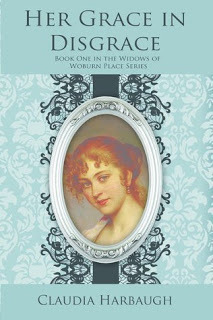
Reginald Aiken, Duke of Warwick is dead and his young widow is not grieving…until the will is read.
Isobel Kennilworth Aiken, Duchess of Warwick spent 6 years of her young life in a loveless marriage. Now, at the age of 24, Isobel is a widow. As Isobel awaits the reading of her late husband’s last will and testament, she feels no grief, but in fact is quite hopeful. She is eager to start her life anew. But, as the droning of the solicitor’s voice washes over her detailing the bequests to various servants and family members, a shock awaits her. The "other woman" was not his mistress, but his lawfully wedded wife and together they had a son. Six year old Reggie is now the Duke of Warwick, displacing Reginald’s brother Charles.
There is a collective gasp as the revelation is made that instantly cuts off Isobel and Charles and dashes their hopes for the future. Isobel must indeed start again, not as a titled, influential and wealthy widow, but as plain Miss Kennilworth, tainted by scandal, something to be avoided at all costs in Regency England. Can she get past the disgrace and humiliation she has endured and fight her way back into society? Will she find love again with her childhood sweetheart, Andrew Stafford, former vicar, now Lord Saybrooke? Or perhaps she will rekindle the romance with Jeremy Ingles, Lord Westcott, who had caught her fancy at her come out six years earlier, but had not been ready to be leg shackled. But before Isobel can find true love, she must come to grips with her past mistakes and the people she has hurt along the way. She must discover who she is without the title of duchess to her name.
ExcerptChapter 1
Isobel Kennilworth Aiken, duchess of Warwick, sat expectantly in her chair, the mid-morning sun streaming through the large window of the stately library at Wren House. The sunshine, so rare in London in April, cast a glow over the crowd that was gathered in the room. No one spoke. Dozens of eyes watched Isobel’s black clad figure for signs of distress, none came. She was the picture of elegance and serenity, her lovely face and large gray eyes revealing nothing. Inwardly, however, she was rejoicing. It would soon be over. They had buried Reginald in the family crypt near Warwick Park in Warwickshire and now they were back in Hanover Square at Wren House awaiting the reading of the will. Isobel smiled to herself and sighed. Seated to her left, her Aunt Maude, Lady Whitcomb patted her hand, mistaking the sigh of relief that escaped Isobel as one of sadness.
Reginald is really dead, thought Isobel once more, and soon she could have a new beginning. True, she had not been able to produce an heir. Therefore, Isobel knew that she would be relegated to the dower house in Warwickshire, but she was sure she would be welcome here at Wren House in London. Her husband’s brother and heir, Lord Charles had said as much. He sat beside her, fairly bristling with excitement. He is rejoicing almost as much as I am, thought Isobel. If Reginald had hung on another few months from the wasting disease he battled for nearly two years, Charles would have had to escape the wrath of the moneylenders by fleeing the continent. Lord Charles, second son of the sixth Duke of Warwick, was as rackety as they came, but there was no real harm in him. Of course he drank and gambled too much, as did all his peers, but Isobel knew that deep down, Charles was a good man. At least he wasn’t heartless and cold like his brother. But enough about Reginald. He was dead. She may only be the Dowager Duchess of Warwick, but she was free. Free to begin a new life. She had done her duty and now she was about to receive her reward.
The solicitor, Mr. Pickens cleared his throat, signaling that the reading of the will would commence. The family hadn’t understood the delay and Mr. Pickens, ever the stickler for propriety had refused to say. No one but he and a handful of servants had seen the black-veiled woman slip silently into the room with a young boy in tow. They stood in the back, the woman clinging to her son’s hand. That was Pickens’ cue. He began to read.“The ninth of April in the year of our Lord, eighteen hundred and seventeen. I, Reginald Wilbur Percival Aiken, 7th Duke of Warwick, Marquess of Crewes, and Viscount of Fenwick, being of sound mind hereby bequeath…”
Pickens’s voice flowed over Isobel like a dream. He named servants and sums that were less than Isobel’s pin money, but to each servant the sum was a boon. The list of servants seemed to go on forever with names she did not recognize. It did not concern her. Pickens droned on past second cousins and cousins. There were no surprises. Those Reginald had approved of were rewarded handsomely. Those of whom he had disapproved were made to feel his displeasure from beyond the grave, including his sister, Letitia, who had wed a loose screw and was living to regret it. Letitia had not bothered to attend the reading.
“And to my wife…” Here Pickens paused and Isobel sat up a little straighter.
“…to my wife,” repeated Pickens seeming loathe to continue, “Adriana…”
There was a universal gasp. Isobel looked hard at Mr. Pickens.
“Surely, Mr. Pickens, one of your clerks has erred. My name is not Adriana.” Isobel’s voice was tinged with ice, something she had perfected in her four years as marchioness and two years as duchess.
Links
Website Amazon buy link Facebook Twitter https://twitter.com/ClaudiaHarbaugh
Published on August 22, 2013 19:15
August 19, 2013
WHAT THE EXPERTS SAY: Author Christian Baker
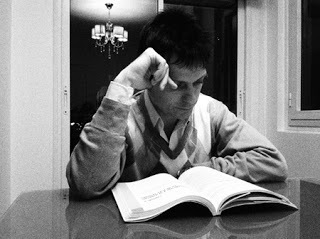 Christian Baker, Author
Christian Baker, AuthorTHE BLEAK DOOR
Christian Baker combines the genres of thriller and science fiction to bring us THE BLEAK DOOR—“a scifi thriller with elements of horror, love, and fundamental humanity,” according to a reviewer. Written to both deliver a deep message and to entertain, the author says “science fiction is just an excuse to deal with a very tangible and real subject in a different way.”
When he’s not writing, Baker enjoys exploring new subjects—particularly those dealing with human nature. And he values his loved ones most of all.
Don't miss the excerpt following the interview.
Q: One of your reviewers claimed, “The fusion of real and surreal kept me glued to the page.” When writing THE BLEAK DOOR—or any science fiction—how important is “reality” or “credibility” to telling the story? How do you create that sense of reality?
Christian Baker: From my point of view, credibility in what is written makes the difference between the reader just reading a story and really experiencing it. This is key. I like my readers being immersed in and gripped by it, being oblivious of the hours going by, of the world surrounding them. In my view, this is only achieved when the situations and the characters are natural, like ourselves, like our life. Thus, author and readers are bonded by the mind and emotions. It is a very special experience.
Q: Why did you choose science fiction as your genre? What first attracted you to it?
Christian Baker: I am very fond of literature as a whole. Perhaps science fiction awakens that fascination and the search for the new, the mysterious, the unknown, which all of us have deep down. In THE BLEAK DOOR in particular, the science fiction approach allows touching on very strong issues in us and our society far more subtly than a conventional story might have posed. But, ultimately, and upon finishing reading the book, the sense of reality it puts across is so clear and tangible that it transcends the genre.
Q: You describe THE BLEAK DOOR as a “science fiction thriller?” How did you make it a “thriller”?
Christian Baker: Since my early youth, I saw myself by and large as a reader being forced to make a decision between two types of books. Those with excellent content aimed at the intellectual readership and those that are fast-paced and emotion-charged, but leaving a void in readers when finishing them. When I undertook this fascination endeavor I strongly set my mind on putting together the purest essence of both universes so that the reader could be engrossed in the franticness of a thrilling story and, at the same time, feel his/her intellectual side is intact. The fusion of the science fiction and the thriller genres set the proper framework to envelope the hidden intrinsic message with the background of a fast and dramatic story.
Q: Would you say that THE BLEAK DOOR is more “thriller” or “SciFi?” Would readers who enjoy thrillers like it even if they’re not SciFi fans?
Christian Baker: I think it strikes a balance. In the case of THE BLEAK DOOR, science fiction is just an excuse to deal with a very tangible and real subject in a different way. If the typical thrillers' reader allows science fiction as the author's license so that he can approach tangible and real issues, not linked to fantasy at all, he might be pleasantly surprised.
Q: Did you write THE BLEAK DOOR to deliver a message and/or for the readers’ entertainment? Reviewers, for example, said “Behind the apparent fiction the story presents very basic questions of our existence and humanity” and “thought-provoking.”
Christian Baker: I wrote the story seeking both things equally intensively. I wanted the reader to be shaken by a deep message and, in turn, even when exhaustion led him to drowsily close his eyes, he would be unable to put down the book. The experience had to be intense in both senses.
Q: How did you come up with the title THE BLEAK DOOR? Why is it significant?
Christian Baker: I wanted a title that wasn’t evident just as I wanted the reader to immerse himself in the story without realizing what was coming. THE BLEAK DOOR shows us a threshold hidden by a door. It doesn't allow us to fully grasp whether it is convenient for us to go through it or not. It is part of the discovery we will have to live through as we begin to understand and experience things along the story.
Q: How do you create characters that are “well drawn and create a real emotional connection with the reader”?
Christian Baker: The story has several characters, which at some point get linked to us from different aspects of our inner selves. They are somehow a mirror of us. And, as we progress in the story and become part of what they happen to face, we gradually rediscover ourselves. The real and emotional connection is just a natural consequence of feeling protagonists, not just readers.
Q: How important is the concept of “villain” to THE BLEAK DOOR? What makes a memorable villain? Do you need a villain to have a hero?
Christian Baker: I think that the villain in a way embodies the challenge we have to face. We might state that when the villain is simple and predictable, our challenge is Q: What’s next?
Christian Baker: First and foremost to enjoy the present, and how positively and beautifully readers are welcoming the book. I believe books have a life of their own. They are like our children, given birth by their parents and then they spread their own wings. I feel that THE BLEAK DOOR is in that trajectory and my wish is that it reaches many, many people with its message. Then, the readers will wink an eye at me, another message will be given birth to and we, once again, will renew that mutual understanding that will bring us together in another story, other emotions, a new learning process.
Q: Tell us about Christian Baker. What do you like to do when you’re not writing?
I am knowledge-hungry, eager to dive headfirst into new subjects and go all out for new experiences. Human nature fascinates me, and so do its challenges - those that aim at a more fair world with happier, inwardly fulfilled people.
And, above all, enjoy my loved ones, and appreciate what having them next to me each day means.
About Christian Baker
I came into the world one year before a man would walk on the moon, at the end of a decade that held the dawn of change in its guts. I was raised during a special and complex time but I retain memories of profound sensitivity and a love of knowledge that impregnated the experiences of my childhood. I look back fondly on my afternoons in the neighborhood. I can still see old the cinema where sensations, words and images appeared as if by magic before my wide eyes. Time advanced with its sure steps and my love for the seventh art spread to a passion for literature. In the pages of books I discovered that prodigious spark which unites the author's tale to the depths of our imaginations. Through reading, writing and the tests life uses to shape us, I learned and grew. Creation and vision nested deep within me.
One day, four years ago, the stream of words and images that I had intoxicated myself with for so many years as reader and spectator, along with the clarity conferred by life's challenges, gave way to the writer that had been lurking within me, waiting for the chance to break free. That is how THE BLEAK DOOR was concocted, an intense and powerful tale, one that sticks to your skin as soon as you take it in your hands. We will travel its pages together, setting off as spectators. We will move quickly into a world of unique sensations, down a winding path paved with fear, drama, doubt and reflection. It will force us to look within ourselves, to flee, to rediscover who we are.
It is my hope, dear reader, that we remain forever united by this experience and that we may journey together always.
About THE BLEAK DOOR – A science fiction thriller novel
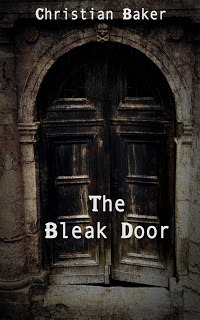
The President of the United States is abruptly hit by a serious and unknown disease. Suddenly, and while his successor was being discussed, he miraculously recovers. Relief rapidly spreads among his assistants and public opinion. The most powerful man on the planet has come back. Or, at least, that is what everyone thought.
A different enemy, beyond our understanding, expands his webs. Soon changes in laws, persecutions, and weird and flabbergasting experiments start to take place. A top-notch interdisciplinary team is clandestinely put together in order to grasp the inexplicable and thus put up some sort of resistance. They were not aware that the knowledge of that truth might only be the beginning of the nightmare.
THE BLEAK DOOR tells us about a world becoming oppressive, violent, without any clear apparent reasons. It faces us with complex questions of our inner self and our response towards manipulation both from an individual and a social level. It positions us before our selfishness, our decisions. And, above all, their consequences.
An electrifying, obscure, fast-paced story from its very first page.
ExcerptThe Beginning
Few minutes remain before I see his eyes again. My pulse races as the desire for his voice, his skin, his breath, devours me from within and pulls me uncontrollably towards the abyss. We know what they do to those like us who dare to defy the ban on contact between our castes. And I feel a profound terror each time I think of this.The rocky mountainside offers our protection, the place where our bodies and emotions intertwine and we dedicate ourselves to one another. Like those old poems I read in the pages of that black covered book that accompanied my first juvenile sensations.Kaled appears silently, like always. I pretend that I don’t see him coming, although I would sense him from a thousand miles away. He hugs me from behind, pressing his body against mine as his lips caress my neck and I shiver within. I turn around and kiss him passionately, as my breathing and my feelings tremble beyond my control in an attempt to express what words cannot transmit.Our clothes disappear, leaving our bodies to meld with the rock and warm air. There is no other place in the world. The rules of others do not apply to us. We belong only here, always and forever.We fall asleep, my ear against his chest, tasting his heartbeats and the humidity that pounds against our bodies. I delight in the moment, trying to make the most of each second, before we must furtively lose ourselves in the shadows and return to our respective places, pretending not to miss the other, lost among so many strange faces. A sound. I open my eyes quickly. He remains asleep and all is silent around me. I shut my eyes again and I let myself be enveloped once more in the warmth of his skin and my emotions.When I feel the cold metal against my skin, terror overcomes me and a scream escapes my throat, mingling with the cries of my beloved. Several armed men surround us. I try to grab my clothes, almost as a reflex, but one of the men steps on them, forbidding me to cover my nudity.They put us against a rock wall, separate us, and look us over. They can taste their miserable victory, knowing that in those moments they are our God, as our fate lies in their hands. One of them smiles, and approaches Kaled. He places a knife a few inches from Kaled’s abdomen as he passes it from one hand to the other, prolonging the horror of the moment as long as possible. Kaled tells me to close my eyes, not to look, but I want to see the spark in his eyes up to the last second.And as the tears spring forth uncontrollably, I feel the earth shake under our feet. Maybe it is my denial, my way of escaping the inevitable. But then I see Kaled’s face and the faces of our attackers, and they all show a mixture of confusion and disbelief. A feeling of emptiness takes hold of my stomach, and my legs no longer hold me up, as I surrender to the fog of confusion.When I reopen my eyes, the mountains have disappeared, and pearly white walls reframe my outside world. I find it difficult to focus my eyes as my heart pounds with unbridled force. I take a few seconds to realize that I am hanging upside down and unable to move, next to the bodies of the men that were our captors only a short while before. They are naked now as well and their expressions show terror. I cannot see Kaled. Dear God! Where am I?A man dressed in a strange suit enters the room. He carries an unrecognizable instrument in his hand. He approaches the first of the group and rests the instrument on the skin of the man who had made a game of threatening Kaled. A suffocated howl of pain escapes his throat, as his body convulses. Other figures covered in those strange suits enter the space and now our screams and horror combine into one cry as we realize we will be next.Someone approaches, extending that strange instrument towards my body. I close my eyes as tight as I can. My heartbeat is as strong as the fear that now invades my entire being. I think of Kaled, in his sweetness, in his skin, in his warmth.Then only my old poems and the shattering of a thousand glasses within me.
Links
AmazonWebsite Book trailer on YoutubeTwitter: https://twitter.com/BleakDoorBookFacebookGoodreads
Published on August 19, 2013 18:39
August 15, 2013
WHAT THE EXPERTS SAY: British Author, Nicola J. McDonagh
 Nicola J. McDonagh, Author
Nicola J. McDonagh, AuthorECHOES FROM THE LOST ONES
Book 1 in Series: The Song of Forgetfulness
British author Nicola J. McDonagh brings us ECHOES FROM THE LOST ONES, the first book in a new series, “The Song of Forgetfulness.” A reviewer recommends it “to anyone who enjoys Sci-Fi, dystopian, action, and adventure stories.” McDonagh herself says there is “lots of action and adventure and strange goings on.”
When she is not writing, McDonagh excels at taking photographs. She is a trained actor and used to have her own touring company. Currently the award-winning author teaches creative writing at the local high school. She is also writing the third book in the series, while she finishes editing the second.
Q: Tell us about ECHOES FROM THE LOST ONES, the first book in the series “The Song of Forgetfulness.” Do you consider your genre “Fantasy”?
Nicola J. McDonagh: I wouldn’t say that the series is strictly Fantasy. It leans more towards dystopian Sci-fi. Although there are elements of the supernatural in Adara’s special power, there are no dragons or wizards or goblins and the like, that you usually find in Fantasy novels. There is however, lots of action and adventure and strange goings on.
ECHOES FROM THE LOST ONES is a tale about Adara, a seventeen-year-old Citydweller who has a special gift that she must keep a secret. She has the power to sing to the birds and make them land. In a future where most edible animals have become extinct, her power is highly sought after.
The story takes place in Scotland, in a time when plague and global warming have depleted mankind’s numbers and killed off all animals, except for birds that never land for fear of being eaten. In NotsoGreatBritAlbion there is hunger. The all-controlling Agros have cut supplies to the inhabitants of Cityplace and the Woodsfolk community, and have begun to raid settlements to find Meeks-gifted young ‘uns.
When Adara’s brother Deogol disappears, she must leave the confines of her Hygiene home and go in search of her missing bro-bro. Adara’s journey takes her through the ravaged terrain of NotsoGreatBritAlbion, where she must defend herself against hormone fuelled Nearlymen, ravenous wolfies, and murderous Agros.
Adara encounters many unusual people on her journey; from the serene and gentle, Ladies, to the dreaded, mask wearing, wolfie-taming Clonies. Yet amongst these misfits and outcasts, Adara finds friends and allies who help her to realise her true potential when she is put to the test during her stay at the Monastery in the Clouds; where she must use all her skill and power to save herself and those she loves from being slaughtered by Agro spies.
Q: Your reviewers praise your “idiosyncratic use of language.” How do you use this language to create engaging characters that readers will care about? How do you use it to develop a unique setting?
Nicola J. McDonagh: I use the language as a way of getting instantly into the character’s personality and unfamiliar world. As the narrative is from Adara’s point of view, it made sense to have her talk to the reader in her ‘own’ voice. The characters and futuristic setting become more credible and believable, when the vocabulary reflects this by being different to today’s spoken or written word.
I wanted the reader to experience what Adara sees and feels through her eyes, and a good way to do that, was to create a slang-based language that instantly says, ‘this is another time and place’ because we don’t speak like that now. We get to know what Adara is like and how she reacts to the action around her by the way she uses words to describe her journey, and the people she encounters. In a sense, we become her friend, and as a result, empathize more readily with her.
Q: One of your reviewers says, “A story of trust and faith, ECHOES FROM THE LOST ONES is an adventure that takes you to a time and place like no other.” How do you make your unique time and place believable? Is believability important?
Nicola J. McDonagh: I think it is extremely important to make time and place believable, otherwise the reader cannot be drawn into the action, or care about the characters.
In ECHOES FROM THE LOST ONES, I use the quirky language and vivid descriptions to create a sensual and plausible environment. Employing appropriate similes to enrich the narrative helps create an authentic setting. We first encounter Adara as she is scrambling through insect filled herbage, into a densely packed wood. We have all seen insects and grass and trees. So the reader can identify with the environment presented. I then bring it into the future by adding unfamiliar accessories and words that hint at another time and place. Such as Synthbag, Sterichoc and killpainpill.
Q: What led you to write ECHOES FROM THE LOST ONES? Who/what influenced you?
Nicola J. McDonagh: ECHOES FROM THE LOST ONES began as a challenge from students that attend a creative writing class I teach at my local High School. They kept giving me books to read, such as ‘The Hunger Games’ and ‘Divergent.’ I’d read them and we’d discuss their merits and failings. The biggest gripe by far was that the female characters never went to the toilet. I asked them if they wanted to see this in the books they read and they said, “Yes.” Then they said, “Why don’t you write one?" So I did.
I think when I was writing it the biggest influence was from ‘A Wizard of Earthsea’ by Ursula K Le Guin’. The way in which she describes settings is very visual and I knew I wanted to make my narrative as descriptive as possible to draw the reader in. Her use of language is also quite lyrical and often poetic which gives her narrative a distinct voice, again something I aimed to do. Then there is A Clockwork Orange’ by Anthony Burgess. His use of language and the ‘nadsat’ that Alex and his friends speak, has an immediacy that I wanted for my narrative.
Q: Why are you writing a series “The Song of Forgetfulness?” (rather than just a standalone ECHOES FROM THE LOST ONES)?
Nicola J. McDonagh: I decided on making The Song of Forgetfulness into a series because when I was writing it, I couldn’t stop. I have written so much about Adara and her world (even a prequel-but don’t tell anyone) that if it were not split into different books, then it would be far too long. Also, the story changes, as do some of the central characters, and it made sense for that change to occur in different books. ECHOES FROM THE LOSTONES tone is quite different from the second and third book, as the action and plotline evolves from the original story.
Q: How relevant is the concept of a “good villain” to your story? What are the characteristics of a good villain?
Nicola J. McDonagh: In my story a lot of the characters are initially presented as ‘evil’ but as Adara, and the reader gets to know them, they become less so because of their circumstances and the way in which they interact with the central character. I did this intentionally to draw attention to the way in which people often make snap judgments about others based on looks, ethnicity, and religious beliefs.
I think having a character that appears to be evil then turns out not to be, is a way to incorporate human frailty that we all identify with. It adds a complexity to the text and can give weight or credibility to the plot/subplot. A ‘good villain’ should be a bit more knowledgeable about things the other characters needs to know, or have a redeeming quality so that the reader warms to them. They should show a vulnerability that in some way justifies their actions. Perhaps they were ill-treated and their ‘evilness’ is a result. As a reader we want to have a loveable baddy that turns out to be good after all. It leaves us with a sense of satisfaction.
Q: Do you use humor to tell your stories? Do you consider humor important?
Nicola J. McDonagh I try to include humor in a story as much as possible. I believe it helps to bring the narrative alive and make the situations and characters more engaging and believable. If we can laugh along with the characters then we identify more with their story. I also use humor as a relief from the more serious subject matters that I address in the book.
Q: Do you write to deliver a message or to entertain?
Nicola J. McDonagh: A bit of both I suppose. Primarily I want to entertain, but what’s a story without some sort of message? A bit two-dimensional. In the book I deal with issues that are of concern to us today. Such as overpopulation, rapid advances in technology and global warming. The book is set in Scotland because oceans have risen and that is all the land that is left in Great Britain. There are no animals because of viral infection, except for the elusive birdybirds and they never land. In ‘Echoes,’ I am trying to suggest that if mankind continues to abuse this beautiful planet, then a world like the one I have created might happen. But I am also trying to say that we are all connected somehow, and that we all have something special inside us, even if we aren’t sure what it is. That we are all capable of doing something amazing if put to the test.
Q: What’s next?
Nicola J. McDonagh: I am currently writing the third installment to The Song of Forgetfulness, as yet without a title, and am working on a series of short stories for audio release as well as paperback and digital-titled ‘Glimmer’. And I am thinking of returning to an unfinished children’s book, called ‘Marauders of the Missing Mummies.’
Q: Oh, I like that title ‘Marauders of the Missing Mummies!’ Good one. Tell us about Nicola J. McDonagh. What do you like to do when you’re not writing?
A: I am a trained actor and photographer and used to have my own touring theatre company. I have a Hons degree in Drama and English Literature and a Diploma in creative writing. I won The Suffolk Book league’s Short Story Competition in 2011 and work mainly in schools as a creative arts practitioner providing arts based workshops for young people. I also teach creative writing for both adults and young people.
When I’m not writing, I’m taking photographs, or making sun photos. I love to experiment with photographic techniques and can often be seen gyrating around a darkened room with a camera and a torch making my ‘painting with light’ images. I also love to cook and grow some of my own vegetables. I enjoy sitting in the summerhouse and watching nature run amok in my back garden. Sometimes with my husband, I go for bicycle rides around the country lanes. I feed and pamper a number of rescue cats and relax by watching a good movie or HBO series with my husband. At the moment I am learning to play the flute and the piano accordion.
More About Nicola J McDonagh
I am a creative writing tutor, photographer and published author. I trained as a photojournalist many years ago and have an Honors Degree in Drama and English Literature. I live in a 17thCentury timber-framed cottage in Suffolk UK with my husband and many feral/rescued cats.
I used to be an actor/director and scriptwriter, but gave it all up when I moved to Suffolk and fell in love with the scenery. I had to capture the wildlife and flora in my big garden and surrounding area, and thought I would go back to photography full time, but stories kept popping into my head influenced by the landscape around me. I had to write them down. But I’d not written prose for over twenty years. I struggled for a while and decided it would be best to go back to college.
After gaining a Creative Writing Diploma, I entered and won the Suffolk Book League’s Short Story Competition 2011. The next year I was short-listed for the Escalator Genre Fiction Competition. This gave me the confidence to complete my manuscript, which came into being during a writing class, I teach at the local High School. Two of the girls that attend challenged me to write a dystopian young adult novel and ‘The Song of Forgetfulness’ series was born.
I try to write something every day, even if it’s only a few hundred words. Most of the time I do a lot more and often complete a chapter or two. At the moment I am editing the second book in the series and dipping in and out of the third one.
About ECHOESFROM THE LOST ONESFirst in the Series: The Song of Forgetfulness
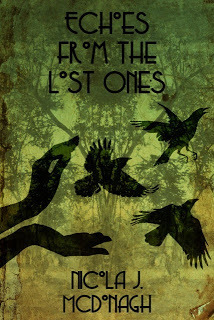
I’m not like the other girlygigs in Cityplace; I’m a bringer. I can sing to the only animals left in NotsoGreatBritAlbion and make them land. Adara, catcher of birds -that’s what they call me and that’s what I can do.
Now that the Agros have cut supplies and folk are near starved, I’d best keep shutums about my name though, or everyone will want a piece of me.
I’d best creep and peep all stealthy-like to track down my bro-bro. Snatched by Agro scum for who knows what.
Good job I’m trained in S.A.N.T. ways too, for I’ll need all my roughhouse skills to keep the Agro spies, Nearly’s and wolfies at bay until I find and bring home my bro and all the other missing Meeks.
I just wish I knew who or what is following my every move.
Excerpt
Something tiptoed down my back. I clenched my teeth so as not to yell “Yak” and continued to crawl. My hands touched squish and prickle and bugs swarmed around my fingers and neck. I was being chomped by all things natural and I wasn’t even a gnat’s breath away from the perimeter fence. I knew nowt about the Wilderness, except it was full to brimming with beasties that craved my flesh.When far enough away so as to be no more than a speck in the distance, I stood and shoulder wriggled until whatever trickled through my flesh hairs fell off. I looked to the sky and with the sun on my right, headed north into the thick herbage; legs heavy from the vegetation that clung to my shins and ankles.The shrubbery gave way to towering trees crammed so tight that after a few steps I was surrounded by dark. Slim streaks of light slashed through the branches and I was able to see enough so as not to trip over the massive gnarled roots that spread across the ground like giant oldie fingers. I took in a breath of leaf rot and made my way all hush-hush through the forest, ears wide open for sounds of danger.A snap to my left caused me to stop ‘bruptly. I turned my head in the direction of said noise. All quiet. I was skittish to be sure not knowing if wolfie or Agro were on my trail. Another crick-crack, but from the right. I waited for a sec, and then darted into the most densely packed part of the wood. The sound did not follow.My lower bits began to pulse. Santy Breanna told me once that pain was merely a mind jest and if I forced my will to block it out, then it would cease. So I focused on my purpose; to find my bro-bro, and hoped that she was right.She was not.My thoughts turned to the soothers in my backpack and I peered into the gloom in search of somewhere to rest. An unruly hairshambles of a plant high enough for me to squat behind became my hideout whilst I rummaged through my Synthbag and took out a bar of Sterichoc and a killpainpill. Crouched and aching in the prickly vegetation, I swallowed down the tab, scoffed the confec and waited for the goodliness to take effect. I shuffled position and wedged myself deeper into the fronds. It was a robust shrub and I quite believed that I was safe, until the ground began to tremble. I looked through the leaves and saw a whole flock of legs of the male kind coming my way.
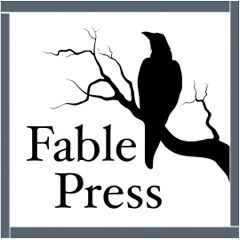
Links
Purchase Links
AmazonUK Amazon US
Author Links
Facebook Twitter: @McDonaghNikkiWebsite Photos Goodreads
Published on August 15, 2013 19:34
August 5, 2013
WHAT THE EXPERTS SAY: Author and Filmmaker, Richard A. Lester
 Richard A. Lester, Author
Richard A. Lester, AuthorTHE CHECK OUTRichard A. Lester describes his new novel, THE CHECK OUT, as a "satirical thriller." Set in a grocery store in a poor part of town, THE CHECK OUT follows a group of employees looking to score big through dishonest means. Film enthusiast Lester says his novel was influenced by film noir.
In addition to writing novels, Lester writes scripts and short stories; and he has directed an independent film. You might check out his blog
entitled A Reel Indication. As you can guess, he watches many movies. And he writes and writes!
Q: Tell us about THE CHECK OUT. Do you consider it a “hardboiled crime novel”? Why?
Richard A. Lester: THECHECK OUT is a satirical thriller which finds a group of loathsome grocery store employees planning to heist $10,000 worth of prize money on the same night. They are each mired in their own dismal circumstances, and believe that the money will dig them out. None of them know about the others’ plans, so things get pretty crazy.
I wouldn’t say that it is a “hardboiled crime novel” in the sense that there is a crime that needs solving. There are definite references to the old Dashiell Hammett novels, and it is rooted in pulp fiction. However, I think there are other elements that push it out of that particular genre.
Q: I noticed that you refer to film noir as influential to your writing THE CHECK OUT. I truly enjoy film noir. Can you explain how your novel compares?
Richard A. Lester: I would say films like The Asphalt Junglewere a big influence on this book. There is $10,000 worth of prize money, and a group of broken characters who are trying to get to it. Each of the characters is flawed, as is common in the film genre. Many of the people in THE CHECK OUT have shadowy pasts, or are engaged in illicit activities. There are also a number of images that are common to noir. I specifically reference Larry, the store manager, staring out of his window blinds. I also describe the broken city that stands around the store. The book is also inspired by Exploitation films of the 70’s, so there is also a lot of that imagery, as well.
Q: What makes a good villain? How important is a good villain to THE CHECK OUT?
Richard A. Lester: In my mind, there are two types of bad guys. There are great archetype villains like Darth Vader, who personify evil itself. Then, there are those who don’t know that they are villains. I think there are both types in THE CHECK OUT. There is an escaped convict who plans on robbing the store. He is the straightforward bad guy. Other characters, though, really become villains without realizing it. I like the reader to slowly come to hate some of the people in my book.
Q: Why will readers care about your protagonist?
Richard A. Lester: THE CHECK OUT is really an ensemble piece, so there’s not a definite protagonist. There are a couple of characters that you feel empathy for, but they are complicated. Leonard Best comes closest to being a protagonist. He anchors the story in an emotional sense, and provides an avenue of redemption for other characters. I think readers care about him, because he is a real person with a devastating back story. He could be anyone’s grandfather. He is the only innocent in the entire book.
Q: How do you create suspense?
Richard A. Lester: First of all, I have to create characters that the reader will care about. Even though they are selfish, and engage in terrible activities, they all have parts of them that are human. I build future events on each character’s flaw, and try to cue the reader into what’s about to happen. The chapters are usually pretty short, so I also end each one on a bit of a cliffhanger. In one section of the book, when everyone’s story is coming to a head, I switch back and forth to each character. The rapid pacing really raises the stakes, and draws the reader in.
Q: Did you write THE CHECK OUT to deliver a message – or primarily to entertain?
Richard A. Lester: THE CHECK OUT is pure entertainment. I love messages in books and film, but I was really just trying to tell a fun story.
Q: How relevant is setting to telling your story?
Richard A. Lester: The setting is another character in THECHECK OUT, as far as I’m concerned. It informs the reader about each of the people in the book. It can also foreshadow events, or build suspense. In this book, I describe a specific type of location, without trying to tie it down to an actual place. Every city has a bad part of town, with a crappy grocery store. I want the reader to see that part of their own city. I think it makes the story more relatable.
Q: What’s next? Will you be writing more books like THE CHECK OUT?
Richard A. Lester: I am going to spend the next few months promoting THE CHECK OUT. During that time, I have a short story that will be sent to subscribers of my email list. It features characters that work at the same store that’s in the book, but it’s a separate adventure.
After that, I will begin writing my next novel. It will have one character from THECHECK OUT; however, it will be a totally different type of book. I aim to make it much darker and more literary.
Q: Tell us about Richard Lester. What do you like to do when you’re not writing?
Richard A. Lester: It feels like I am always writing! In addition to my novels, I also run a blog (Onthepageblog.com) dedicated to writing. I have a Facebook and Twitter account that I try to post on daily. I have also been running a movie review blog for two years or so now called A Reel Indication. I am a huge film buff, so I watch a lot of movies. I have a local DVD shop that specializes in the weird and wild, so I spend a lot of time there. I work on short films for other people, occasionally, as well.
About Richard A. Lester
Richard A. Lester is an American writer/filmmaker. He has written scripts, short stories, and one novel to date. He has also worked on several plays, and directed an independent film. His writing is usually gritty and satirical; focusing on outlandish characters and the wild situations that they embed themselves in. He is heavily influenced by film; namely exploitation movies of the 1970′s and noir titles of the 1930′s and 1940′s. His literary influences include Carl Hiaasen, Christopher Moore, and Donald Ray Pollock. His other interests include history, science, and education. He also runs a film review blog entitled A Reel Indication.
About THE CHECKOUT
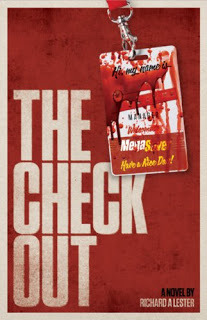 Failing grocery store manager Larry Prescott just wants a quickie. With a frigid wife waiting at home, Larry decides to have some extramarital fun with an employee named Maxine Watkins. Though he has no way of knowing it, Larry is sowing the seeds for a crime spree that will be dubbed “The MegaSaver Massacre.“
Failing grocery store manager Larry Prescott just wants a quickie. With a frigid wife waiting at home, Larry decides to have some extramarital fun with an employee named Maxine Watkins. Though he has no way of knowing it, Larry is sowing the seeds for a crime spree that will be dubbed “The MegaSaver Massacre.“THE CHECK OUT is a satirical thriller that will appeal to fans of Carl Hiaasen and Christopher Moore. It is the story of a $10,000 giveaway, and the employees who independently decide to heist the money on the same night. An ensemble piece, each chapter focuses on the motivations and actions of a different main character. Larry Prescott is an arrogant drunk whose affair quickly spirals towards danger. Maxine Watkins is a scheming liar, determined to claw her way out of indigence. Terrence Claybrook, the assistant manager, is an escaped convict trying to keep his past from catching up to him. Roland Tillman, a blood thirsty fugitive, reunites with his former cellmate during the MegaSaver robbery. Brad, an addiction ridden stocker, tries to turn his life around while picking up the pieces of a broken marriage. They each see the prize money as their only lifeline, and are determined to do everything necessary to grab it.
Links
AmazonFacebookhttp://twitter.com/ralesterauthorOn the Page BlogWeb page for THE CHECK OUTGoodreads
Published on August 05, 2013 19:03
August 1, 2013
FunFamily Tips: Writing Exercises for Family Entertainment
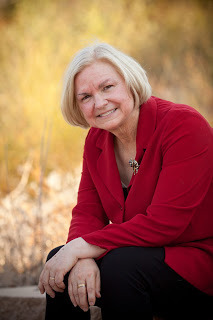 Joyce T. Strand, Author
Joyce T. Strand, AuthorON MESSAGE & OPEN MEETINGS
Jillian Hillcrest MysteriesIf you follow this blog, you are familiar with my FunFamily writing exercises based on the theory that writing can be fun and even therapeutic. To top that—you can have fun with the family doing brief exercises that will help develop writing skills.
Following are suggestions for some new FunFamily writing exercises. You can check out FunFamily exercises in previous articles here and here. Enjoy!
· You are on vacation with some down time between events—and your bored kids who believe they should be constantly on the move. To fill some time, ask each family member to write a paragraph describing a favorite smell so far on vacation—without naming it. Other family members are to identify it. You can substitute favorite noise, sight, person, animal, parent, child, etc. Give a prize—an extra dessert at dinner, for example—for the one who correctly identifies the most subjects.
· Write a page or two of dialogue spoken by two action heroes without telling who they are. Family members are to identify them.
· Each family member is to describe a character in a book—preferably one you’ve read. Try to incorporate how the character appears, smells, talks, walks, listens, rather than use words such as hero or villain. The other members are to identify the character. This exercise can be repeated with other characters in other books.
· Write a paragraph describing a happy moment you've experienced, such as, the first day of school (just kidding), meeting a best friend, getting a new pet, greeting a family member whose been gone for an extended period of time, opening a special gift. Tell why it made you happy. Read your paragraph to your family. You might be surprised at their reactions.
· Write a paragraph describing how it feels to have the wind blow against your face; or the sun shine on it; or bitter cold hit it; or rain. Remember to include each part of your face—your nose, eyes, mouth, cheeks, forehead, hair. And remember to include all the senses—smell, sound, sight, touch. Reward the author of the paragraph who includes the most senses and parts of the face.
· Write a paragraph describing a restaurant and what you ordered—without identifying either the restaurant or the food. Tell how the restaurant and your food smelled (pungent), appeared (filled the plate), sounded (sizzling), and tasted (spicy, sweet). See if your family can guess which restaurant and what food you ordered.
I hope you enjoy these latest suggestions for FunFamily writing exercises.
Published on August 01, 2013 22:07
July 25, 2013
WHAT THE EXERTS SAY: Author, George Snyder
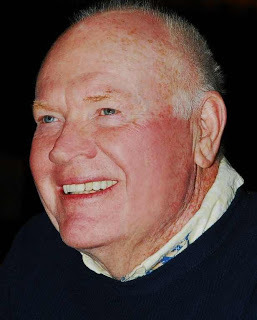 George Snyder, Author
George Snyder, AuthorBAJA BULLETS
THE FAREWELL HEIST
Award-winning and prolific author, George Snyder, has written more than 30 fiction and non-fiction books. One of his popular hardboiled crime novel series features sailor Baylor –most call him just “Bay”- Rumple, who typically meets “good cops, bad cops, mob hit men, and long-legged beauties.” Most recently he has authored a stand alone hardboiled crime novel, THE FAREWELL HEIST, that takes place in an entirely fictional city—River Beach, in coastal Northern California, which is planned for release soon. It involves a heist to gain funds for politicians to pay for added offshore drilling.
George himself is an avid sailor, in addition to being a prolific writer. He is currently working on a new series character: Logan Sand is a former boxer, Shore Patrol, SEAL, Naval Intelligence, boxer; now a private detective connected with the Lady Eye Detective Agency as the token male. When he is not writing or sailing, George likes to ride motorcycles and has owned more than twenty and ridden more than 300,000 miles.
Q: You are a prolific writer of both fiction and non-fiction, and have produced the Baylor Rumble hardboiled crime novel series, with the latest, BAJA BULLETS. What made you decide to write about Baylor Rumble and how did you create his name?
George Snyder: Thirty-plus books so far with eleven still available on Amazon and other outlets. The idea for the Baylor Rumble series came to me back in the nineties; about a guy who designed and built an ocean sailing catamaran who would sail to different parts of the world. This was shortly after I had designed and built a cruising catamaran that I sailed to Alaska and back from Seattle. At the time, I intended to do the same, maybe go around the world. The cat was stolen and destroyed and that ended my dream. But what if this guy actually did it, sailing from port to port, and finding treachery and killing wherever he sailed? That was the germ for the idea.
I created a biography for Bay. He was abandoned as a newborn and found in a dumpster. The orphanage named him—Baylor because when found he had the lid of a Baylor Bean can imbedded in his forehead. Rumble because as a baby he never cried, just made this rumbling sound from his throat. Nobody in the books calls him Baylor, he’s just Bay
Q: What are the attributes of “a hardboiled crime novel”?
George Snyder: The dictionary defines “hardboiled” as: harsh, unsympathetic, unsentimental; tough and callous by virtue of experience; hard-bitten, emotionally hardened. Nobody writes that pure a definition today, if they ever did. Softened to apply to crime genre writing, it shows an unsentimental portrayal of crime, violence and sex. Carol John Daly started the genre in the 1920’s; then it was honed by Dashiell Hammett and further by Raymond Chandler, and those who came later: Mickey Spillane, John D. McDonald, Richard Prather, to the guys working at it today, Dennis Lehane, Ken Bruen, Robert Crais, James Crumely, and many others.
With each generation of writers, the meaning grows softer. Now we have Private Eyes with a feminine side, elderly parents in a nursing home, taking their kids to school and with child visitation.
Into the twenty-first century, one character epitomized the true meaning best—Parker. Parker is without emotion or sentiment. He is a craftsman devoted to his work. His work is stealing. What he hates most is chaos. Some men, like some dogs need to be shot—that sort of thing. The creation of Donald Westlake writing as Richard Stark, Parker will no longer be as he once was. Donald Westlake is gone. Whoever takes over will fall short. Those who write in the genre today are more complicated with cluttered lives. Lee Child’s, Jack Reacher comes close but his background is too military and he doesn’t quite hit the purity of the genre.
My original intent with Baylor Rumble was to make him somewhere between Parker and Spenser and Travis McGee. But since I’m too soft, he’s too soft so maybe I didn’t make it.
Q: How do you encourage readers to care about Baylor?
George Snyder: Bay cares, maybe too much. In each book there are two types of women, a tough selfish bitch and a damsel in distress. Bay must conflict with one to rescue the other. Most of the men he confronts just want him dead and work hard to get that done. He does have a few buddies. His loyalty is unwavering.
Q: BAJA BULLETS is set on a sailboat headed for Mexico. How important is setting for telling your story? How do you select a setting?
George Snyder: As stated the original intent was to have him sail from port to port. He lives on his catamaran. I started him local: BAD GIRL DEAD is in Long Beach, California; BLEEDING SISTERS in San Pedro. Because of what happened to him in that book, he vows never to return to California. After CATALINA KILLERS I had to get him out of the country.
In 1993-1994, I had solo-sailed my small sloop down Baja and spent a year cruising Mexico. I spent four months living in La Paz and used that as a base for BAJA BULLETS. As hinted at during the ending, the next book will be about the international slave trade and will take place on and around a Pacific island. The book will be awhile coming.
But my stand alone hardboiled crime novel, THE FAREWELL HEIST, takes place in an entirely fictional city—River Beach, in coastal Northern California, population about 60,000. I sure liked doing that and will again. No walking the mean streets, drinking in tough dives, no maps, able to steal little quirks from many real cities. Good, easy stuff.
Q: What makes an effective villain?
George Snyder: I chair a critique group at Barnes and Noble in Long Beach. Those who live a suburban life often don’t like that crime novel people can be so mean. It’s understandable, most suburb types have not had a gun pointed at them or been threatened with a knife, and for the guys, their last fist fight was in high school.
In my genre, a villain has to be as vile and evil as a “B” movie monster. As a twist he may have a slick line of patter and heartbreaking rugged good looks to mask his dark heart, and worse black soul. He is and does pure evil. One thing I love about Elmore Leonard, sometimes his villain is a cowboy or flashy dresser with the personality of a stand-up comedian onstage; one minute laughing and loving and a short time later killing. My villains are hissing bad. I love my villains. To be believable and operate on the same turf, the antihero must be only slightly less evil, the way Parker is.
Q: How do you create suspense?
George Snyder: Short chapters; cliffhanger chapter endings; plants. Raymond Chandler once wrote that when you’re stuck in a story, have a man walk in the room with a gun in his hand. If in a previous chapter somebody says, “Hey, a guy might come in here with a gun anytime tomorrow morning,” then the reader is in suspense.
My chapters run five to seven pages. Readers today are busy; they won’t wallow through twenty pages of narration without a break. But James Patterson (a tough read for me) or whoever writes his stuff these days goes apeshit with his one-page chapters.
To keep your reader you have to roll your story along with little introspection, philosophical meanderings or beautiful scene descriptions. You need lots of conflict and action.
I try to end each chapter with a cliffhanger, maybe not a plot changer but something to add suspense, to make the reader want to get into the next chapter. You send your character to bed at the end of the chapter; the reader will go to bed too and maybe not pick up the book again. But end the chapter with the guy crawling in bed with a beautiful woman and just when he’s about to practice his lovemaking skills, she pushes the snout of a Glock 9mm against his throat, the reader might want to know what happens next. I love it when the book ends in a gigantic twist but my writing skill isn’t good enough for that.
Plants are important. They make the reader wonder, make him/her think: wait a minute, back in Chapter Six; I saw that black bowling bag with the white stripe in the clown’s closet. He’s the one who stole the money, the virginity, the jewelry and her Bible.
Q: Do you write to deliver a message? Or for pure entertainment?
George Snyder: The cliché is, as a Hollywood producer said, “Wanna send a message, use Western Union.” The hardboiled crime genre is not literature. It can be but usually isn’t. The books are for entertainment. And yet…at the end of each Sherlock Holmes novel, the sleuth makes a philosophical statement that might be taken as a message.
Ray Bradbury once said that his science fiction stories were based on: if these events are allowed to continue, this is what might happen. I used that for my one and only science fiction romance novel, BEYOND GENDER WARS. The premise being that if the battle of the sexes became a shooting war, this is what might happen.
Despite that, in order to flesh out my characters, I might give them a philosophy stated in a sentence or two, their reaction regarding what is going on around them. And my latest books carry an undercurrent sub-theme with national or global ramifications. THE FAREWELL HEIST is about oil drilling platforms off the California coast AND crooked politicians. Yes, it’s a heist novel but the money was being used for political bribes to add more drilling platforms. It should be taken away from them, and my guy Ben Steele intends to do just that. The second book in my new Logan Sand series, PLUNDERED ANGELS covers child prostitution. I’m leaning more toward a small protest voice against injustice by the temporary force in power over regular folks. Evil takes many forms.
Q: Your resume offers a list of jobs you’ve held in addition to writing. What was your favorite one?
George Snyder: All my jobs were forgettable. Their only function was to pay rent and put food on the table so I could write. The day I got out of the Navy, I intended to write. If I made a lot of money at it, swell. Even if I only made a little money, I’d still write. Soon after the Navy, I had a wife and two small kids. I was sending out a story a week to men’s magazines and they were coming right back. I had to work. Many years were spent in aerospace assembly, I had no degree, and after I completed my apprenticeship as a machinist, I worked at that. Eventually I got into planning then engineering then tech writing, which was fill-in-the-blanks boilerplate, and editing. Aerospace had layoffs about every year so I’d go into something else.
The now ex-wife went off to live with somebody else and I was never interested enough to get another one. The kids are grown and living their own lives. I retired as Senior Editor of Technical Publications from Boeing. With retirement, I can write full time if I live frugal. And I do.
Since my creative efforts were used for writing, I didn’t want a job that required me to think too much. I liked working with my hands. Building four liveaboard sailing vessels during lay-offs felt good after hours of writing. I’m uneducated and I’ve never had a career.
Q: What’s next? Do you plan to continue with the Baylor Rumble series? Others?
George Snyder: The next Baylor Rumble book will be awhile coming. I’m excited about my new series character, Logan Sand; former boxer, Shore Patrol, SEAL, Naval Intelligence, boxer; now a private detective connected with the Lady Eye Detective Agency as the token male. First draft of THE CALCUTTA DRAGON is done and cooling off while I complete the second book, PLUNDERED ANGELS. I’m trying to make Logan tougher than Bay but I know I’ll never get him as tough as Parker. I’ve never had an agent so my books are brought out by small publishers, too small to be eligible for prizes.
THE FAREWELL HEIST did receive an award from the Southwest Writers Conference. I’ve written some screenplays but I only write them based on my own novels so nothing has happened. As mentioned, BAJA BULLETS does have a film option, whatever that means.
Q: Who is George Snyder? What do you like to do when you’re not writing?
George Snyder: Sail, with cruises along the coast and to Catalina Island. Scuba diving with dives in the Channel Islands, Sea of Cortez, Puget Sound and the Gulf of Thailand, although I snorkel more these days. Motorcycles, I’ve owned more than twenty and ridden more than 300,000 miles through Canada, Mexico, the five western states; even rented them in Japan. I have an old dual purpose on/off road machine now. A memoir about motorcycles is out there: ROAR AND THUNDER, motorcycle journeys. Although I’ve seen most of the Far East, I plan a six-month backpack trek across Europe soon. Gold panning is my new passion, although I use metal detectors more. Even found some color. Of course I read, constantly. And I like movies, good and bad. I also camp, and ocean fish from my boat. I do have a blog about writing: http://onewriterconnection.blogspot.comBut mostly, I write. My books can be seen on my web site:www.georgesnydersbooks.com
I’m on Facebook-Twitter-LinkedIn-Smashwords-Google-Goodbooks-Goodreads
About George Snyder
George Snyder started by publishing short stories in men’s magazines; one to Alfred Hitchcock’s Mystery Magazine. His first novel, ‘The Surfer Killers’ was published as ‘Surfside Sex’ by Playtime Books (part of Neva Paperbacks) in the early sixties. With Merit and Award books and through promoter Lyle Kenyon Engel, he wrote seven Nick Carter spy/adventure “scres and kill” books. One book, ‘The Defector’ went into three printings and was translated into French and Japanese. As Patrick Morgan, he wrote ten spy/thrillers in the Operation Hang Ten series with titles like, ‘Hang Dead Hawaiian Style’ (translated into French and Japanese), ‘Cute and Deadly Surf Twins’, ‘Deadly Group Down Under’ ‘Too Many Murders’ etc. As Ray Stanley, he wrote ‘The Mini Cult Murders,’ loosely based on Charles Manson.
Breaking loose on his own in the late seventies, Snyder wrote a sci-fi Romance ‘Beyond Gender Wars,’ eventually published as an eBook by Extasy Publishing in 2010. He self-published three books in the Baylor Rumble series, BAD GIRL DEAD, BLEEDING SISTERS, CATALINA KILLERS, as well as a non-fiction book, ‘Making it on Social Security’ and two memoirs, ‘The $900 Honda’ and ROAR AND THUNDER. In 2011 he connected with BooksForABuck Publishing that published ‘SATIN SHORTS, and 2012 THE CROSSFIRE DIAMONDS. Also in 2012 he received an award from the Southwestern Writers Conference, Albuquerque in the mystery/detective/thriller category for his crime novel, THE FAREWELL HEIST, published by BooksForABuck in July 2013. Solstice Publishing brought out the eBook of #4 in the Baylor Rumble crime novel series, BAJA BULLETS and in 2013 the printed version.
In 2013 he launched his new Logan Sand hardboiled crime series. The first novel, ‘The Calcutta Dragon’ is complete. He is working on the second, ‘Plundered Angels.’ In May 2013 he signed a contract with television media production company Villavision for a 24 month film option on BAJA BULLETS
About the Books
THE FAREWELL HEIST – Coming soon!
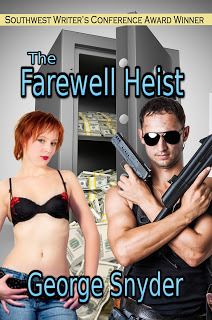
Benjamin Steele (Ben) is having an affair with Aubrey Blair; whose husband Jason has an $18 thousand poker debt owed to Ryan Silky, River Beach club owner. Silky hired PI Kurt Noland to forcefully collect from a list of heavy debtors, Jason at the top. Steele's long time friend, Seth Tanker, wants Steele to head a heist of two million from oil exec, Price Sydney, retired judge, Aldrich Thorne, and Senator Mansfield Monroe. The money is being used to buy senator votes for added offshore drilling platforms. Demonstrators clutter downtown River Beach. The same night Steele breaks it off with Aubrey, Jason is killed in a foggy alley. Police suspect Ben Steele.
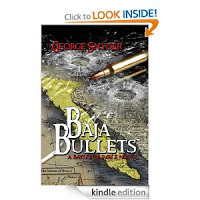
BAJA BULLETS
Sailing on a Mexican treasure hunt for buried gold with his two-girl lesbian crew, Bay finds drugs, is attacked by the cartel, and loses all he owns as he is dumped in the desert and left to die. Rescued by shrimp captain, Carlos and his daughter, Consuela, who is lusted after by the evil Pierre Dante, Bay gets involved with a movie star diva, wealthy Mexicans, a cartel war, the CIA, drug territory takeovers, and cops and robbers as he dodges Baja bullets in an attempt to rescue Consuela and get his revenge.
BAD GIRL DEAD
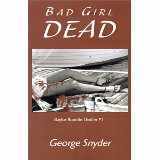
In this first of the Baylor Rumble sailing/adventure/mystery series, Bay is hired by a mobster widow to find a missing diary belonging to the long-legged beauty blown away right in front of him. Delving into the beauty's history, he learns she was a bad girl, and not the only bad girl he encounters. He meets good cops, bad cops, mob hit men, another long-legged beauty with a killer husband, an ex-stud gone to seed, a lovely willing country girl, and other delightful killers.
BLEEDING SISTERS
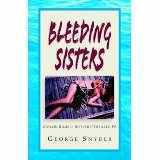
They tortured her. They cut her throat and bled her.Then they hung her from the rigging of Baylor Rumble's self-designed, self-built sailing catamaran home, Baye Rumb. Her three sisters want Bay to find out who did it. Wading through more murder, mayhem, and marauding women, Bay finds his wisecracking, noisy, disrupting personality fighting terrorists with a plan torn right out of today's headlines, drug smugglers, government agents, exploding boats, sea chases, loving and evil sisters, even some of his own demons to deal with. Finally, Bay is himself tortured and sliced, and not even sure if he can wrap up and tie off this caper.
CATALINA KILLERS
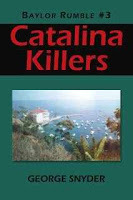
Sailing to Hawaii, Bay finds an encrusted dinghy with a dead young woman inside. Ordered to Catalina Island by police, he is detained, attacked, robbed, seduced and teased as he unwillingly tangles with movie stars, a film diva, a dirty cop, pedophiles, hookers, a drunken stage mom, a molested teenage actress, an overbearing director, killers and thieves. Forced at gunpoint to take part in the drug deal during a raging gale, Bay, in his third sailing/adventure/mystery caper tangles with them all to find the -- CATALINA KILLERS
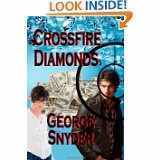 CROSSFIRE DIAMONDS
CROSSFIRE DIAMONDSMillions of diamonds are enough to tempt even the virtuous into crime and Colt Fallon has never been especially virtuous. While cleaning up a botched kidnapping, Fallon learns of the diamonds and the bank where they're being held. He won't be able to get them on his own, but Fallon has a way of attracting the right wrong people--starting with the woman who once betrayed him and who, Fallon is sure, will betray him again. Unfortunately, Fallon isn't the only person after the diamonds. A Chinese syndicate known as "The Principles" has targeted the jewels and Fallon, putting their top assassin on the job.
ROAR AND THUNDER
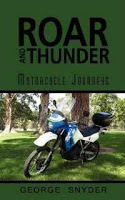
From Cushman motor scooters to four-cylinder Hondas, Roar and Thunder is a personal lifetime journey of owning and riding motorcycles. Solo or two-up it tells of riding adventure through five Western states and Mexico, what was going on in the world at the time, and the changes in motorcycles and attitudes about them. There are twisty open roads, mud trails, quick boring freeways, traffic jams, high desert winds, pouring rain and blinding blizzards. The big motorcycle rides of the past are there - Death Valley Run, Indio, Lone Pine, Yuma Prison Run, Sunday poker runs, and just rides for burger and beers. Absent are Harley Davidson only events.
SATIN SHORTS
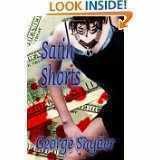
After two years in prison, Eddie O'Rourke is thinking payback for Nick the Book, the man who backstabbed Eddie after they ran a jewel heist, stole Eddie's wife, and talked her into shooting Eddie. Nick adds a twist to Eddie's plans when he calls and offers Eddie a chance to help out on a bank robbery. Nick has coordinated a daring multi-bank holdup and arranged an exchange in a money laundry. All Eddie will have to do is receive the money from the robbers, drive it across the border into Canada, and hook up with Nick who'll be waiting for him. For that, Eddie gets a couple hundred thousand dollars and, as a bonus, Nick sends Nadine, a "semi-retired hooker" to keep Eddie company.
Links
Web: www.georgesnydersbooks.comBlog: http://onewriterconnection.blogapot.com
Published on July 25, 2013 18:47
July 14, 2013
WHAT THE EXPERTS SAY: Making Alienating Characters Likeable by Catherine Astolfo
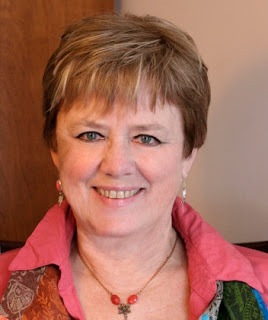 Catherine Astolfo, Author
Catherine Astolfo, AuthorSWEET KAROLINE
Mystery author Catherine Astolfo has just launched her newest novel, SWEET KAROLINE. In her newest thriller, she challenges herself to create an alienating character that readers will care about. Catherine has written many award-winning short stories and novels. I encountered her first when I read the Emily Taylor mystery, THE BRIDGEMAN, that kept me up all night to finish.
In the following guest post, she ponders how to make an alienating character—likeable.
Making Alienating Characters LikeableBy Catherine Astolfo
How on earth could I make my character likeable when the first sentence of SWEET KAROLINE goes like this: “I met Ethan on the day that I killed Karoline”?
It’s okay for Dexter; they hired a good-looking, charming actor to captivate the audience. Although my character is beautiful, she’s inside a book, not smiling at you in high definition. Would readers like my Anne?
One of a writer’s primary goals is to ensure that the main character is someone readers can care about. If you don’t give a hoot whether the protagonist lives, dies, achieves her goals, or solves the puzzle, you won’t keep reading. Even if the character is an anti-hero like Dexter, he must appeal to you in some way.
I began to think about all the times in my life when I heard someone say, “I could just kill…him/her.” I knew they didn’t mean it—most of the time. Ending a fellow human being’s life is abhorrent to most of us. When we’re angry, we sometimes want to inflict the worst thing ever on the object of our distress. The worst thing ever would be murdering that person. People who are forced to kill in war, for instance, very often suffer posttraumatic stress disorder.
What would happen if I said in anger, “Oh go drown yourself in the lake” and my target did exactly that? How would I feel? Would I consider myself a murderer? Would I have a mental breakdown like Anne does in the first couple of chapters? PSTD perhaps, even if I only imagined the accident?
What would happen if I dreamt of someone’s untimely death? Let’s say I had a particularly horrible boss so my subconscious conjured up a bungee jumping incident. Next staff bonding event involves a bungee…
Unless, of course, the character is a psychopath. That certainly puts a different stamp on things. We would probably agree that Dexter hasn’t got much of a conscience. My Anne is smart, charming, and has been terribly hurt. She suffers enormously from the “incident”, to the point of an emotional collapse, even though Karoline’s death was ruled a suicide. Perhaps Anne is upset, traumatized and feeling guilty because she didn’t prevent it. Otherwise, she wouldn’t be quite so devastated.
Right?
I think I might have accomplished my goal, though: here’s what Mel Bradshaw, author of Fire on the Runway, says about Sweet Karoline: “Never have I encountered a narrative voice that alternates more deftly between alienating and enticing."
For all things about author Catherine Astolfo, and to buy her books, visit her at www.catherineastolfo.com
About Catherine Astolfo
Catherine is a past President of Crime Writers of Canada and a Derrick Murdoch Award winner (2012). She was a Zonta Club 2012 Nominee for Women in Achievement.
Writing is Catherine’s passion. She can recall inventing fantasy stories for her classmates in Grade Three. Her short stories and poems have been published in a number of literary Canadian presses. In 2005, she won a Brampton Arts Award. Her short stories won the Bloody Words Short Story Award (second and first) in 2009 and 2010. She won the prestigious Arthur Ellis Best Short Crime Story Award in 2012.
Catherine’s novel series, The Emily Taylor Mysteries, are published by Imajin Books and are optioned for film by Sisbro & Co. Inc. SWEET KAROLINE was released on July 14, 2013.
Purchase Catherine’s books at www.catherineastolfo.com
About SWEET KAROLINE

If I knew what I know now, would I have searched so hard for the truth?
Anne Williams says she killed her best friend, Karoline. But did she? Or is there more to Karoline's mysterious death than meets the eye?
Anne embarks on a compelling journey to discover her past and exposes an unusual history, horrific crimes and appalling betrayals. Through unexpected turns and revelations, Anne learns about love, family and who she really is. Can she survive the truth?
Links
Amazon Webpage
Twitter @cathyastolfo
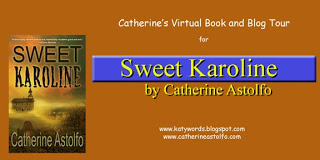
Published on July 14, 2013 20:32
July 11, 2013
WHAT THE EXPERTS SAY: Author April Voytko Kempler
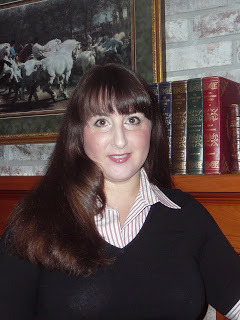 April Voytko Kempler, Author
April Voytko Kempler, AuthorTHE ALTERED I, A HOLOCAUST MEMOIR
Memoir of Joseph Kempler
as told to April Voytko Kempler
April Voytko Kempler brings us her father-in-law’s story about survival in six concentration camps as a teenager during the holocaust and what that experience did to him. She tells THE ALTERED I, A HOLOCAUST MEMOIR in the first person after listening to him relate his story on PBS and on other platforms.
Currently a Reno resident, April started her life in Southern California. As with many writers, she has been an avid reader since childhood. She is patiently waiting the publication of THE ALTERED I in between helping out with the business she and her husband operate.
Q: Tell us about THE ALTERED I, A HOLOCAUST MEMOIR. Is it fiction or non-fiction?
April Voytko Kempler: It is non-fiction told as a first person narrative.
Q: What led you to write THE ALTERED I, A HOLOCAUST MEMOIR?
April Voytko Kempler: I've always had a deep interest in the Holocaust, but never thought I would write a book about it until I met my future father-in-law, Joseph Kempler. I was significantly touched by his story. I heard him speak publicly about his ordeal, but never delved into the particulars with him. Then in the early 2000s he was asked to be part of a PBS sponsored documentary entitled Knocking. That was my true inspiration for wanting to write the book. After seeing Joe's experiences in the context of the documentary my curiosity about him was piqued more than ever. I also saw that people were drawn to him and wanted to know more about him too. I had hoped he would write his memoirs, but it was clear he needed someone to jump-start him and that ultimately became me. It was a great honor to be the one to write his story for him.
Q: What is the significance of the title THE ALTERED I?
April Voytko Kempler: I don’t read poetry as a rule; however, The Mental Traveler by William Blake grabbed my attention. Especially one short line in parenthetical's: “(For the eye altering, alters all)” and that just blew me away. I knew somehow this was going to be the book’s title. It fit so perfectly with Joe’s life. His "eye" had altered, not by his choice or will, but his life course was so changed that everything else had changed as well. His focus, his goals, and even his spirituality changed direction. The title The Altered I is such a powerful sentiment for the theme of Joe's story.
Q: What did you learn from writing THE ALTERED I?
April Voytko Kempler: First, I learned I could write a book! I learned a lot about the publishing world from a business perspective, I learned I can market myself. But, most importantly, I learned patience. I learned to be patient with myself and others. I learned if I stretched myself out of my comfort zone I would be OK. And I learned that there is a lot of support and camaraderie among the writer world. Writers really do want to support other writers and see them succeed. It was an unexpected and pleasant surprise.
Q: Do you plan to write other holocaust books?
April Voytko Kempler: I definitely would like to try my hand at writing a fictionalized account of the Holocaust. Fiction is really the direction I would like to go with my writing career, unless of course another fantastic true story presents itself to me. But, I will say non-fiction is challenging. I had to research a lot of the historic facts and make sure what I was writing was accurate, especially with something as sensitive a topic as the Holocaust.
Q: Why are you a writer
April Voytko Kempler: I love a good story like anyone else, plus I have an overactive imagination. When I read a riveting book I can’t help but think can I do this too? Can I make people lose themselves in a world I create? Also, writing is enjoyable to me. I very often express my thoughts better with the written word than speaking face to face. There’s no delete, or back-space button in real life. I like the self-editing factor of writing.
Q: How do you make your readers care about your book?
April Voytko Kempler: I have a character, although he is a real person, who people can relate to. He is far from perfect, he makes all kinds of mistakes, he is flawed as a human but people can sympathize and emphasize with him and his plight. Strangely enough I had one gentleman come up to me and say the opening chapter reminded him of his own father. People can relate to the story even if their background and personal history is different, it resonates. And I only have four sample chapters available right now and people keep asking when can we read more? That is what every author loves to hear. There is more, I finished the book, but it hasn’t been scheduled for release yet, so I ask for a little more patience on the part of the readers (I’m trying to be patient too!)
Q: What do you consider the most important elements of any good writing?
April Voytko Kempler: A little bit of mystery, a little bit of romance, some action, and a happy ending. I really like happy endings.
Q: Who are your target readers? Who do you think will most benefit from reading your story?
April Voytko Kempler: I wish I could say one specific group of people, but honestly everyone I talk to young, old, parent, child, teacher, spiritual leader, they are all so interested in reading and learning more about the Holocaust. I especially think it is important for young, school-age children because the generation that went through WWII and the Holocaust is diminishing and so are their stories. I don’t want to see this subject end up as ancient history. As a people we are still affected by all that happened during that time. The damage still trickles down through the generations. I don’t want the important lessons of that time to be forgotten.
Q: What’s next?
April Voytko Kempler: More writing of course and hopefully more books published!
Q: Tell us about you. What do you like to do when you’re not writing?
April Voytko Kempler: I’m usually reading. I fool around on the internet too much! I also volunteer for my church and my local historic society. I assist my husband in our window covering business and I’m a busy wife! My husband and I love to travel so when we get a chance we are planning our next getaway.
About April Voytko Kempler
Born in Southern California, April Kempler currently resides in her "adopted" city of Reno, Nevada. She lives with her husband, who doubles as her editor-in-chief. April's first book entitled The Altered I, a Holocaust Memoir, is a first-person narrative about the Holocaust.
April loves reading, a habit she picked up as a child. Instead of playing with the other kids, she could be found with her nose in a book. She reads a variety of genres, but is especially drawn to historical fiction.
When April is not writing or reading, she assists her husband in their window treatment design business answering the telephone, making appointments and helping to install gorgeous draperies on naked windows.
About THE ALTERED I, A HOLOCAUST MEMOIR
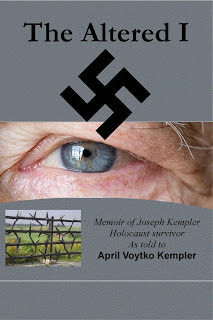
Joseph Kempler is eleven years old in 1939, when World War II begins. German soldiers have invaded his hometown of Krakow, Poland. Forced with his family to leave their home, business and belongings, Joseph embarks upon an adventure that will change his life forever. Joseph survives six concentration camps, some of them death camps, from the ages of fourteen to seventeen.
Along the way he abandons family and faith. He curses God for allowing the Holocaust to happen and becomes an atheist. When he arrives at the concentration camp Melk, he encounters, from a distance, an unusual brand of Christian. He is told they are called Bibelforscher, Bible Students. He is astounded to see these Aryans imprisoned in the same concentration camp as Jews and is shocked to learn that they can leave the camp anytime, all they have to do is renounce their faith, but they won't do it.
This leaves an indelible impression on young Joseph's mind. Many years later, after emigrating to America, Joseph miraculously encounters this group again when they knock on his door. Always curious about their faith he questions them, and ultimately he converts to Christianity. THE ALTERED I chronicles Joseph's life and the circumstances leading to his life altering decision, while shining new light on an untold story of the Holocaust.
LinksLink to introduction to prologue and sample chapters:Link 1 Link 2
LeRue Press website to purchase pre-order: see the tab Pre-Order Books on far right side of page.
Blog Twitter: https://twitter.com/aprilkempler Facebook Pinterest
Goodreads author: Soon!Amazon: Soon!Barnes & Noble: Soon!
Published on July 11, 2013 22:21
June 28, 2013
WHAT THE EXPERTS SAY: Historical Thriller Author Carl R. Brush
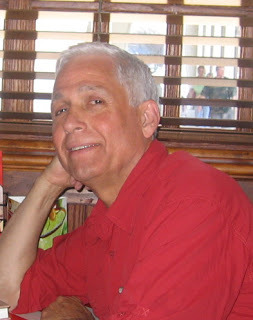 Carl R. Brush, Author
Carl R. Brush, AuthorTHE MAXWELL VENDETTA
THE SECOND VENDETTA
Carl R. Brush writes historical thrillers set in the San Francisco area – a location I truly appreciate. (My own books are set in the modern-day San Francisco area). He has just published THE MAXWELL VENDETTA, a prequel to THE SECONDVENDETTA, one of my favorite historical thrillers. We fans enjoy his really bad villain, reluctant hero, characters drawn from real historical figures, and themes still relevant in today’s world, like bigotry, corruption, and large companies exploiting little guys.
Carl is a retired English/Drama teacher and school administrator who rediscovered his alto saxophone and has been playing in a senior jazz ensemble they’ve named the geezer band. He is working on his third historical thriller in the series set in the San Francisco area in the mid-nineteenth century.
This is Carl’s second contribution to this blog. You can read his earlier guest post “Turning Real People into Characters” here.
Q: Why did you decide to publish a prequel, THE MAXWELL VENDETTA to THE SECOND VENDETTA?
Carl R. Brush: Sounds kind of backward, doesn’t it, to publish the prequel after the sequel? That’s how my life often goes. I wrote THE MAXWELL VENDETTA first, started shopping it around, and garnered a nice collection of “So sorry,” notices. In the meantime, I tried a couple of other projects which generated little enthusiasm either at home or abroad, so I went ahead with the sequel, which I’d planned to do “sometime.” That became THE SECOND VENDETTA. When Solstice Publishing accepted it, I reworked THE MAXWELL VENDETTA, applying suggestions that Solstice Editor-in-Chief, Nik Morton, had made regarding THE SECOND VENDETTA, which brings us up to today. Not the way I designed the process, but I guess someone else in the great somewhere redesigns the original design, and not always intelligently, if you ask me. But she doesn’t ask.
Q: How do you make events from the early 20th century relevant to today’s world?
Carl R. Brush: Easy. All the central conflicts in both THE MAXWELL VENDETTA and THE SECOND VENDETTA could be ripped right from today’s headlines—Individual and institutional racism; corporations brutalizing us commoners; political corruption; media manipulation; romance, requited and un-. Sound familiar? The thing is, you set these issues down in a historical context, and they suddenly look different and somehow fresh. Many of my readers have commented about how interesting and surprising it was to think that folks in long skirts and high collars struggled with our same uglies. Interesting, yes. And both discouraging and exhilarating to think how little we’ve solved or changed.
Q: I admit I’m biased. I enjoy exploring history through characters and their experiences. How do you build your characters in an historical setting so that they appeal to readers? Are they based on real people?
Carl R. Brush: I think the process of building characters is pretty much the same for any genre of fiction. For your main people, you imagine folks who interest you, set them down in nasty situations, and see how they react. Do they turn tail and run? Attempt to fight their way out? If so, do they fight fair? Do they succeed or fail? How do they handle the results either way?
One of the best pieces of writing advice I ever got (Credit: author Les Edgerton) was to put your characters, especially your protagonists, in fixes from which you have no idea how to extricate them. You learn a lot about both the characters and about yourself working through those. To me, writing your way in and out of these crises, is much more valuable than an outline for deciding how the story goes. And a lot more fun. I know one great example from a book you might recognize, Joyce, called ON MESSAGE, in which a certain lady finds herself in big trouble and makes ingenious use of an undergarment. I won’t give anything else away, because if they haven’t already, I advise your readers to dive right into that terrific novel and find out what she does with what.
As for the idea of basing characters on real people, some of my characters, especially in THE SECOND VENDETTA, are not only based on real people, but were actual historical figures. Ambrose Bierce, for example, really was a prominent writer of the period. Hiram Johnson did win the 1910 CA governorship. However, I admit I made only a moderate effort to research and recreate their personalities. This is fiction, after all, not biography.
I make no conscious attempt to my fictional characters on real people. After the fact, however, I see resemblances between my protagonist, Andy Maxwell, and myself; and there are strong parallels between his mother, Carolyn Maxwell, and my own mother: Strong, decisive, often narrow and opinionated, compassionate when it counts.
Q: One of your reviewers described Yellow Squirrel as “one of the most delicious villains I've seen in a long time.” I concur. They don’t come any “badder.” How did you create such a villain?
Carl R. Brush: I wanted a guy who had a strong and believable motive for getting even and who wouldn’t give up on it. As I wrote, though, I realized I needed another dimension if the notion that this guy would keep his resentment alive for decades was to be believable. After all, other people in his family had suffered the same injustice he had, but had moved on. I dove into his psyche and realized that he is someone who lives to intimidate and destroy. It’s his fulfillment in life. Whether it’s as inconsequential as forcing people off a sidewalk on a downtown stroll or as felonious as slaughtering a whole family, domination and destruction are his raison d’etre.
That idea of fulfillment through annihilation, I think, gives a positive (in his mind) base to his evil actions and makes him more interesting than your melodramatic mustache-twirling villain who’s bad just because. On a more philosophical level, I see Yellow Squirrel as a personification of evil itself. Many folks have said of Milton’s Paradise Lostthat the Devil is the most interesting character. Where would storytelling be, after all, if we had only angels to talk about?
Q: How important is the concept of a villain to creating suspense and, for that matter, to defining a hero?
Carl R. Brush: As I’ve said elsewhere, there are many wonderful novels that have no central bad guy. Wendell Berry’s fine works have no such characters as far as I know. Kate Atkinson’s latest, Life After Life, is the most recent example I can point to. As for me, though, I need my bad guys front and center.
Yellow Squirrel (I hope) creates dramatic tension in both my Maxwell novels whether he’s in a particular scene or not. I give him his own chapters, but even outside them, his threatening and intimidating interactions with characters other than those he intends to destroy mean that those characters carry his presence with them everywhere. Thus, danger, in the seen or unseen presence of Yellow Squirrel, lurks behind every page the reader turns. At least that’s what I intended.
As to Yellow Squirrel’s effect on our hero, he’s the foil, the forge, the crucible that defines Andy. Andy’s a reluctant hero, drawn into a role for which he considers himself unfit, but a role no one else can fill. And it’s a role crucial to the survival of his family and many others besides. The story is about how he learns to build and develop a part of himself he didn’t know existed. Without Yellow Squirrel, he’d have never discovered that element of his character at all.
Q: Did you write these novels to entertain or to enlighten readers about the history of the period?
Carl R. Brush: Both. Sam Johnson said literature should edify and delight. That impulse comes from being a teacher all those years, I guess. Or maybe becoming a teacher came from the desire to edify and delight. I do hope readers will pick up some of my love of the time and place as well as some knowledge about it. It’s why I love reading historical fiction myself.
Q: How did you become interested in San Francisco/California history?
Carl R. Brush: That seems to be just part of my DNA. My great grandparents came to Northern CA via 1864 wagon train. My natural inclinations and abilities were always literary and verbal rather than mathematical and scientific. When I was growing up in a rural part of the Sacramento Valley, San Francisco was my city on the hill, my escape goal from small-town monotony. My interest has never flagged, so here I am.
Q: What’s next?
Carl R. Brush: I’ve just finished drafting a third novel in this group. The working title is Bonita, and I’m working backwards again. It’s set in a San Francisco of the even more distant past, a time when the town was still called Yerba Buena. Unlike the other two, this covers a dozen years (1842-54) instead of a couple of months. The Maxwell part of it comes in the form of a cameo appearance by the patriarch of the other two books, Carter Maxwell, who’s referred to but never actually comes to life in either work. The working title for this one is BONITA, which is the name of the heroine, a 12-year-old (when the book opens) who discovers that she’s not, after all, the niece of her guardian uncle, a prominent figure in the area, but a waif he’s treated as nearly a daughter since she was an infant. It’s quite a switch of protagonists for me, and it’s a wonderful adventure. My beta people think she’s a neat character, so I’m encouraged. I believe BONITA is even better than the Vendetta’s, but I also believe you should believe that your best creation is the one you’re working on now.
Q: Tell us something about Carl Brush. What do you like to do when you’re not writing?
Carl R. Brush: I’m a lucky guy. A retired English/Drama teacher and school administrator, I live in Oakland, across the bay from San Francisco, with my wife, Susanne, who blessed me with three stepchildren, who, in turn, blessed us with six grandchildren. Four of them live within a mile of us, ranging from 3-14 in age, so we do a lot of taxiing and babysitting.
I had a rural upbringing by a dad who was raised on a small farm, and an uncle who was a foreman on a couple of ranches. The family spent many vacations hiking and fishing around the Sierra. Thus, though I can make no claims to some of the skills my characters possess, I have some acquaintance and experience with those who do. On the other hand who among us has personal experience with the centuries past about which we choose to write?
A few years ago I picked up my long-neglected alto sax and joined a senior jazz ensemble we call the geezer band.
Susanne and I do a fair amount of traveling, and we plan to keep at it as long as our health allows us to endure airports and long plane rides. We’re headed for the UK next month.
Publishing my own novels was a lifelong goal, so holding that first paperback in my hands was and is a super thrill, and I’m grateful to you for this opportunity to talk about how it got there. Thanks for the insightful individualized questions.
About Carl R. Brush
Carl Brush has been writing since he could write, which is quite a long time now. He grew up and lives in Northern California, close to the roots of the people and action of his historical thrillers, the recently-released The Maxwell Vendetta, and its sequel, The Second Vendetta. A third volume of the trilogy, set in pre-gold-rush San Francisco is nearing completion. Its working title: Bonita.
You can find Carl living with his wife in Oakland, California, where he enjoys the blessings of nearby children and grandchildren.
Journals in which his work has appeared include The Summerset Review, Right Hand Pointing, Blazevox, Storyglossia, Feathertale, and The Kiss Machine. He has participated in the Napa Valley Writers’ Conference, the Squaw Valley Community of Writers, the Sewanee Writers’ Conference, and the Tin House Writers’ Workshop.
About THE MAXWELL VENDETTA

Early California, 1908. Andy Maxwell sets out to solve the mystery surrounding the stabbing death of his younger brother outside a San Francisco bar. He’s certain the murder is part of a vendetta against his family, but frustration and suspense mount as he fails to convince authorities that the killing is anything more than the sad consequence of a brawl between a pair of drunks. The police, the U.S. Army, even his mother refuse to entertain the possibility that the killer, Michael Yellow Squirrel, is one of a clan who intends to wipe out the Maxwells and their California Sierra Nevada ranch.
Andy’s quest for the motives and perpetrators behind the scheme carries him from California to Wyoming and deep into his family’s pioneer past and psyche, where he unearths disturbing secrets about, among other matters, his own racial heritage. It also plunges him into a romantic dilemma involving a blonde debutante and an Arapaho princess. Although Andy’s initial purpose is to foil a conspiracy against his family, his journey eventually leads him to question not only his own values, but also those of the frontier that spawned and nourished them.
This historical thriller, the prequel to another gripping historical novel, THE SECOND VENDETTA, is set nearly one hundred years in the past, yet THE MAXWELL VENDETTA embodies themes as contemporary as racism, political corruption, and sexual exploitation. In short, contemporary America mirrored in a novel of early California.
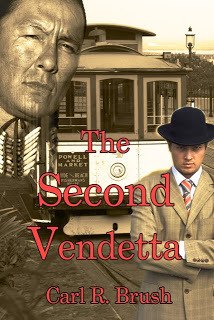 About THE SECOND VENDETTA
About THE SECOND VENDETTA Not again.
It’s taken Andy Maxwell two years—1908-1910—to help his family recover from the vendetta that nearly killed his mother, burned their Sierra Nevada ranch house, and exhumed some long-buried family secrets—including the fact that his father was black. At last, Andy thinks, he can return to University of California and pursue his history doctorate in peace.
Not so.
First of all, it turns out they don’t want a miscegenated mongrel in the Ph.D. program. Just when he’s enlisted the eminent San Francisco journalist, Ambrose Bierce, to help him attack that problem, it turns out that marauder who started all the trouble in the first place didn’t stay Shanghaied. Michael Yellow Squirrel is back for another try at eliminating every last Maxwell on earth. So much for school.
And then there’s the election.
Reform gubernatorial candidate Hiram Johnson wants him to run for the California legislature and help foil the railroad barons.
And then there are the women.
The debutante beauty and the Arapaho princess.
So, how is Andy Maxwell, going to deal with all these quandaries? The Second Vendetta answers that question and many more with a tale-telling style that pulls readers into the book and doesn’t let them go till they’ve turned the last page, wishing there were more yet to turn.
Links
Book LinksTHE MAXWELL VENDETTA – a prequel to THE SECOND VENDETTAAvailable in e-book and paperback at Solsticepublishing.com, Amazon.com (http://amzn.to/PXmxt8), and other outlets
THE SECOND VENDETTA from Solstice Publishing available on Amazon and at Solstice Publishing
Author LinksWebsite BlogFacebook GoodreadsTwitter: Carl R Brush @carlrbrush
Published on June 28, 2013 10:48
June 24, 2013
WHAT THE EXPERTS SAY: Author Annamaria Bazzi---Book Tour Introducing White Swans REVELATIONS
 Annamaria Bazzi, Author
Annamaria Bazzi, AuthorREVELATIONS
The White Swan Series
Annamaria Bazzi brings us The White Swans series of YA, fantasy short stories. The newest member is REVELATIONS, targeted at teens who prefer short stories. Annamaria uses “simplicity” to create the mysticism of her fantasy world. But beware: she "loves mixing genres." Reviewers say, “the plot lines are twisting nicely” in this third story of the series.
When not busy writing, Annamaria enjoys painting, walking and spending time with her family.
This interview is part of Introducing The White Swans: Revelations Book Tour.
Q: How would you describe your new story White Swans: REVELATIONS to your readers? Fantasy? YA? Science fiction? Romance?
Annamaria Bazzi: The White Swans is a series of YA, Fantasy, short stories created for all teens who won’t read because novels are just too long. In the midst of the Fantasy, I throw in some Science Fiction. I love mixing genres.
Q: Reviewers of the first story in the White Swans series described it as “Alice in Wonderland gone bad” and “mystical.” How do you create that sense of mysticism?
Annamaria Bazzi: I don’t try to be mystical or mysterious, because, in the past, when I would try to inject those qualities or feelings into the story, I’d fail miserably and critics would slash me for it. I was beaten too many times before it sunk in that all I need to do is show the story as my mind’s eye sees it, no more no less. Simplicity is the best way of showing a story. Through simplicity, the mysticism or mystery will become apparent on its own.
Q: How do you make a make-believe world believable? Characters? Back-story?
Annamaria Bazzi: First, I have to believe in this world, because if I don’t believe in it neither will the reader. A make believe world has to have elements that the reader can identify with, elements that come from the real world that the reader will be familiar with.
The characters need to have personalities the reader can identify with, they should be someone that could be living next door.
Q: What do you do to make us care about your characters, particularly your protagonist Kendíka?
Annamaria Bazzi: All I really do is try to make her as real as possible. She is a young woman modeled after the personalities of a couple of my girls. Kendíka must be someone teens can identify with.
Q: Are you in control of your characters, or do they intrude and make you write things you haven’t thought of yet?
Annamaria Bazzi: I always believe I’m in control, until the characters slap my hands and move in a totally different direction than I wanted to go in. That’s what happened in book two when this unknown girl, Jillian, popped in and is now sharing the story with Kendíka.
Q: What makes a good villain? Can you name the villain in White Swans: REVELATIONS?
Annamaria Bazzi: I have two villains in the series, and in this book it starts to be apparent who they are, Harry, the Count of Paddington and his owner Brodrik.
Q: What do you like to do when you’re not writing? Hobbies? Events? Favorites?
Annamaria Bazzi: I love to read and paint, and sometimes I enjoy drawing. I also enjoy going for walks.
About Annamaria Bazzi
Although born in the United States, Annamaria Bazzi spent a great deal of her childhood in Sicily, Italy, in a town called Sciacca. Italian was the language spoken at home. Therefore, she had no problems when she found herself growing up in a strange country.
Upon returning to the States, she promised herself she would speak without an accent.She attended Wayne State University in Detroit Michigan, where she obtained her Bachelor of Science in Computers with a minor in Spanish.
Annamaria spent twenty years programming systems for large corporations, creating innovative solutions, and addressing customer problems. During those years, she raised four daughters and one husband. Annamaria lives in Richmond Virginia with her small family where she now dedicates a good part of her day writing.
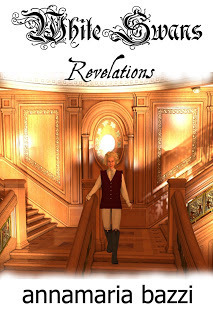 About WHITE SWANS: REVELATIONS
About WHITE SWANS: REVELATIONSAfter attempting to accept her fate in the strange fishbowl world, Kendíka decides it’s impossible. Call her a pet, will they? Determination revived, she tempts her “master’s” fury by trying to make life better for the people of Deverow’s Duchy. She will bring technology to the Regency era or end up a swan trying.
Still longing for a higher station in her new existence, Jillian sets her sights on Harry, the Count of Paddington. The only problem? Getting the man to take notice of her. Perhaps discovering some common ground—besides their rabbit-like features—will do the trick.
Links
Visit annamaria at:
Facebook Blog LinkedIn Twitter: @AMBazziAUTHORSdB GoodreadsYou can write to annamaria at: annamariascorner@yahoo.com
Links to annamaria’s books:
White Swans: RevelationsAmazon
White Swans: The New Girl in TownAmazon
White Swans: A Regency EraAmazon
A Simple Matter of JusticeAmazon Barnes & NobleSmashwords
Revelations of AbaddonAmazonBarnes & Noble Smashwords
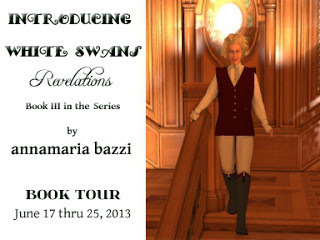
Published on June 24, 2013 16:41



